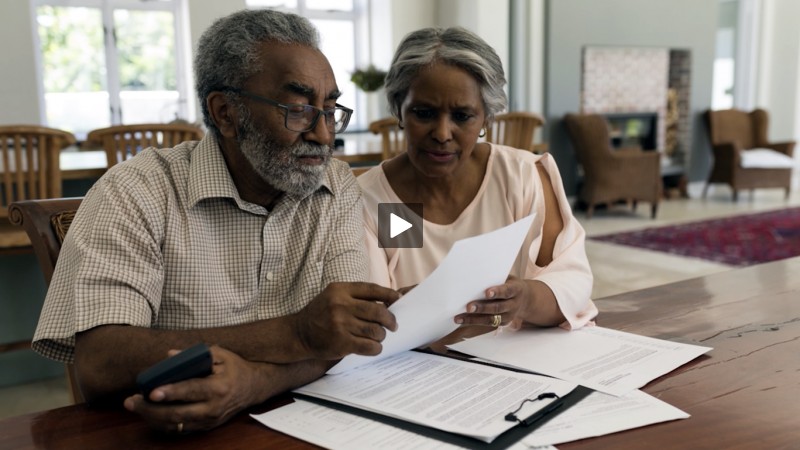Home Buying for Empty Nesters
- Details
- Written by The FoolProof Team
- Category: Articles

Now that the kids have flown the coop, it's time to assess your home. Is a new home in your future or are you thinking of making changes to your present home? Or are you thinking of moving to an active adult/retirement community? These sections will provide food for thought. And the information works well with the our Home Buying Guide.
Thinking of Buying a New Home?
Choosing one that fits your present and future.
Option: Your current home no longer fits your lifestyle so you've decided to look for a new one.
A good place to start is with our Home Buying Guide. You should also look at the section on Ensuring That Your Home Is Accessible Long-Term.
As we get older, most of us want to stay in our own homes as long as possible. It's called "Aging in Place." That's one reason individuals buy new homes after the kids are grown. Many homebuilders are now taking this fact into account in how they design and build homes. This article on Bob Vila's website describes some common aging-in-place features.
Retiring in Your Current Home
Option: You're planning to stay in your present home, but you want to make some changes.
There are a variety of things you can do such as redecorating, changing the use of rooms, and remodeling. You may also need to make some changes to your home to reflect changes in your lifestyle.
Aging-in-Place features are taking center stage in remodeling projects. The following articles describe various ways these features can be incorporated into homes.
Aging-In-Place Checklist from the National Association of Home Builders
8 Things to Consider Before Remodeling to Age in Place from Next Avenue
Home Remodeling from Aging In Place by the National Council For Aging Care
Buying a Retirement Home in a Specialized Community
Option: You've decided that the time is right to buy a home in an active-adult/retirement community.
As boomers grow older, the number of housing developments and planned housing communities designed for adults over fifty is increasing. But all communities may not be equally suited to your needs.
When deciding on a retirement community, make a list of what you are looking for and then prioritize it. Here's a sample of things to consider:
- Do you want to stay in your current area? If not, where do you want to go? A coastal community, desert community, north, south, east, or west?
- Do you want to be close to family members?
- What activities and facilities does the community have?
- What type of housing is available? Single homes, condominiums, apartments? Single or multi-story?
- Do the available floor plans meet your needs?
- What kind of services are available? Lawn maintenance, house maintenance, personal assistance?
- Close to medical facilities?
- Are restaurants close by or are meals available?
How to Choose Your Best Place to Retire from Next Avenue provides tips to help you find the place that best meets your needs.
This article from CNNMoney.com's Ultimate Guide to Retirement describes items to consider when looking to find the best place to live in retirement.
Selling Your Current Home
If you've decided to move, whether to another home or a retirement community, then you may want or need to sell your present home. Selling your home isn't as simple as finding a buyer. Here are some tips and issues that you should consider.
Plan ahead, take your time, and don't rush into a sale. It takes time to carry out several important steps in making the best sales decision. These steps include:
- Determining the accurate value of your home in today's market. You may wish to obtain a comparative market analysis, an appraisal or both.
- Considering the impact that the income from the sale of your home may have on your larger financial picture including capital gains tax implications and how you will invest the proceeds from the sale.
- Deciding whether you will use a real estate agent and selecting the right agent.
Even if a sudden life even has caused you to consider selling your home more quickly than you planned, avoid rushing. Consider consulting an appropriate financial planning expert or legal advisor about available options to help you span the time between your need and the time it takes to sell your home wisely. Also, consider asking your adult children for their assistance; they may be ready and willing to help "share the load" or manage the sale for you in keeping with your wishes.
Determine the true value of your home in today's market. Many individuals and couples who have lived in their homes for thirty to fifty years won't have a realistic valuation of their home. Determining this value is a must before you put your home on the market. If you are working with an experienced real estate agent, he or she will be able to prepare a market analysis and also to work with you on looking at your home's condition and how that may affect its sale value. For example, Are your interiors up-to-date or dated? Have you deferred maintenance? Would a potential buyer consider your home to be "move-in" condition?
You may also wish to have a professional appraisal conducted. Your bank may be able to recommend a reputable appraiser with knowledge of homes in your neighborhood.
Select the real estate agent that's right for your needs. If you plan to use a real estate agent as most sellers do, then you may wish to consider an agent who has experience in working with senior sellers.
Consider and plan for potential tax consequences. Although the capital gains tax exemption on the sale of a home is $500,000 for a married couple and $250,000 for an individual, the value of your home, particularly if you have lived in it 30 years or more, may have grown beyond those sums. If the appraised or potential market value of your home is larger than these amounts, you may wish to consult your tax advisor about the tax consequences and your options.


































